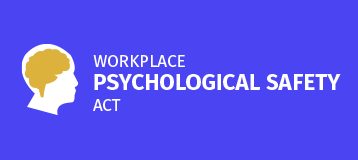France, along with Sweden, are considered to have the strongest legal protections against workplace psychological abuse. The way the French handle bullying and mobbing in the workplace has pros and cons that offer useful lessons for American advocates of psychological safety at work.
A Comprehensive Conception of Workplace Safety and Health
Following a 1989 European Union directive that employers must safeguard workers’ safety and health, in 1991 France passed legislation that made employers responsible for preventing health risks to their employees. This legislation did not cover bullying. However, in 2002 the French took safety and health considerations one step further, spurred by the 1998 publication of a book on workplace bullying by psychiatrist Marie-France Hirigoyen and the resulting public attention to the issue.
In 2002, France made psychological safety and well-being an integral part of overall safety and health in the work environment. It approved a law making “moral harassment” – the French term for bullying and mobbing – a criminal and civil offense. With this law, the prohibition of “moral harassment” was integrated into France’s penal and labor codes. The labor code carries sanctions including a one-year prison term with a fine. At the same time, the penal code authorizes a criminal sanction. The bully can be fined and imprisoned for up to two years.
Key Components of the French Anti-bullying Law
Pros:
- Prevention is central to the laws. Employers are obligated to take all measures necessary to prevent bullying in the workplace.
- Employers are held responsible for employees who bully, regardless of prevention measures they have taken.
- Even the likelihood of harm to the employee’s health can be considered bullying.
- Intention and intent are immaterial. Bullying may be intentional or unintentional.
- The laws view people at all levels of an organization as capable of being bullies, not just those in authority. They recognize that a bully may be a subordinate or the targeted employee’s peer as well as supervisor.
- If they witness or are told of bullying situations, staff members must report them. The employer is then required to arrange a legitimate investigation and take all steps needed to rectify the problem.
- Workers have the right to file for wrongful termination if they are let go as a result of bullying. Furthermore, if they voluntarily leave their jobs because of bullying, workers can claim their departure as wrongful termination and receive compensation.
- Bullied employees can claim damages from the employer and the bully.
Cons:
- The French law defines bullying and mobbing as “repeated acts leading to a deterioration of the working conditions and that are likely to harm the dignity, the physical or psychological health of the victim. or his professional career.” Nine of out ten bullying cases involve repeated acts of hostility. However, one single humiliating incident or act of aggression can cause significant psychological harm, and we believe single incidents as well as repeated acts need to be acknowledged in legislation.
- Mediation may be requested by the targeted employee or the bully. The mediator is mutually agreed upon and develops a formal plan for ending the abuse. Mediation is a voluntary process, and asking targets to negotiate with their abusers is something we do not support. With that said, it may be included in a layered option approach to resolve bullying.
CHALLENGES
- Although the anti-bullying law asserts that the bully’s intention doesn’t matter, another part of the French criminal codes states that “there is no crime or offense without an intention to commit such.” This places the burden of proving intent on the targeted employee.
- Soon after France’s moral harassment law went into effect, a bullying case involving a TV station was brought to criminal court in Paris. The court denied that harassment was aimed at the complainant and ruled in favor of the employer, citing a question of intent. By making a ruling favoring the employer due to intent, the law’s scope was narrowed considerably.
implications for U.S. legislation
Some elements of France’s law are models for the U.S., particularly its comprehensive interpretation of safety and health to encompass psychological well-being and its preventative approach to psychological safety, including the involvement of other employees who witness or know of bullying. On the other hand, we can improve upon France’s law by broadening our legal definition of what bullying and mobbing can consist of.
Another lesson is the need to examine other parts of our legal codes to find inconsistencies that might negate protections we want to legislate.
Finally, our advocacy has to include efforts to vote in judges who will interpret laws in favor of individuals our employment laws are meant to protect.
Sources:
https://www.ilo.org/dyn/normlex/en/f?p=NORMLEXPUB:12100:0::NO::P12100_ILO_CODE:C190
https://www.shrm.org/resourcesandtools/hr-topics/global-hr/pages/workplace-bullying-protections-differ-globally.aspx
https://www.thehrdirector.com/business-news/diversity-and-equality-inclusion/french-law-prohibiting-bullying-in-the-workplace/
Photo by Pixabay: https://www.pexels.com/photo/architecture-blue-sky-city-cityscape-532826/




